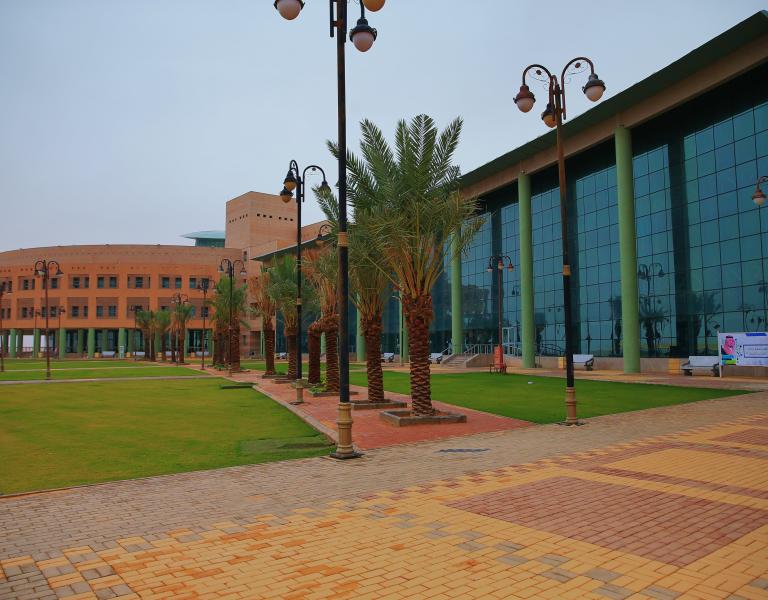Various Department Committees manage specific functions within the department to ensure structured and efficient operations, supporting the accomplishment of the department's mission and goals. Key committees include:
Quality Assurance and Academic Accreditation Committee
Purpose: Ensure high-quality education and compliance with accreditation standards.
Key Responsibilities:
Develop, implement, and monitor a comprehensive quality assurance system.
Promote a culture of quality among faculty, staff, and students.
Coordinate academic accreditation processes, including self-study preparation and site visits.
Oversee curriculum assessment and evaluation.
Conduct periodic quality assessments and evaluations.
Identify and facilitate training needs for faculty and staff.
Collect and analyze data on program performance indicators and stakeholder surveys.
Collaborate with stakeholders to enhance quality and communicate outcomes.
Design the Annual Operational Plan and monitor its implementation.
Other Responsibilities:
Complete tasks assigned by the department council or head of the department.
Curriculum and Study Plan Committee
Purpose: Design, develop, and update the curriculum.
Key Responsibilities:
Create and revise study plans for academic programs.
Review and evaluate the curriculum to ensure it aligns with industry trends, complies with academic standards, addresses stakeholders' needs, and incorporates innovative practices.
Collaborate with stakeholders to improve curriculum effectiveness.
Periodically review and evaluate department programs and curricula.
Propose revisions based on feedback and assessment results.
Other Responsibilities:
Complete tasks assigned by the department council or head of the department.
Graduate Studies and Scientific Research Committee
Purpose: Oversee graduate programs and foster research excellence.
Key Responsibilities:
Oversee all aspects of graduate programs, including admissions, curriculum development, and evaluation.
Support and mentor graduate students in their research and studies.
Manage the thesis/dissertation processes.
Promote research activities, collaboration, and funding opportunities.
Organize research seminars, workshops, and conferences.
Other Responsibilities:
Complete tasks assigned by the department council or head of the department.
Academic Advising, Student Affairs, and Career Guidance Committee
Oversee the academic advising process to ensure consistent and effective student support.
Organize career preparation activities to enhance students’ readiness for professional opportunities.
Facilitate the referral of students to university-level psychological and social counseling services when needed.
Promote extracurricular activities to foster leadership, teamwork, personal growth, and the development of university graduate attributes.
Support high-achieving students.
Evaluate academic advising and career guidance programs to ensure they meet student needs.
Laboratories and Learning Resources Committee
Purpose: Manage and optimize laboratory facilities and learning resources.
Key Responsibilities:
Oversee lab maintenance, safety protocols, and equipment upgrades.
Coordinate the procurement and inventory of lab supplies and equipment.
Prepare an annual report on laboratory usage, maintenance, and resource needs.
Ensure the availability and functionality of learning resources, including software, textbooks, and online materials.
Provide technical support and training on resource utilization.
Facilitate training sessions and workshops on using learning resources.
Evaluate resource needs and recommend improvements.
Other Responsibilities:
Complete tasks assigned by the department council or head of the department.
Faculty Affairs Committee
Purpose: Manage faculty-related matters and support professional development.
Key Responsibilities:
Oversee faculty recruitment, hiring, onboarding, promotions, and evaluations.
Handle faculty transfers, assignments, leaves, and workload allocation.
Facilitate professional development opportunities and mentorship programs.
Consider faculty promotion requests and submit recommendations to the department council.
Manage scholarship applications and track recipients' progress.
Review scholarship requests and ensure compatibility with department policies.
Maintain faculty data and analyze staffing needs.
Follow up on scholarship recipients' progress and submit reports to the department council.
Other Responsibilities:
Complete tasks assigned by the department council or head of the department.
Alumni and Employer Relations Committee
Purpose: Foster strong relationships with alumni and employers for mutual benefit.
Key Responsibilities:
Maintain an updated database of alumni contact information and career trajectories.
Organize alumni events, reunions, and networking opportunities.
Engage with employers to identify internship and job opportunities.
Collect feedback from alumni and employers to improve the program.
Create a database of training and employment opportunities.
Other Responsibilities:
Complete tasks assigned by the department council or head of the department.
Community Service Committee
Purpose: Promote community engagement and social responsibility.
Key Responsibilities:
Develop and implement community service initiatives aligned with the department's mission.
Encourage faculty and student participation in community engagement activities.
Build partnerships with community organizations.
Organize events to promote community service and assess their impact.
Other Responsibilities:
Complete tasks assigned by the department council or head of the department.
